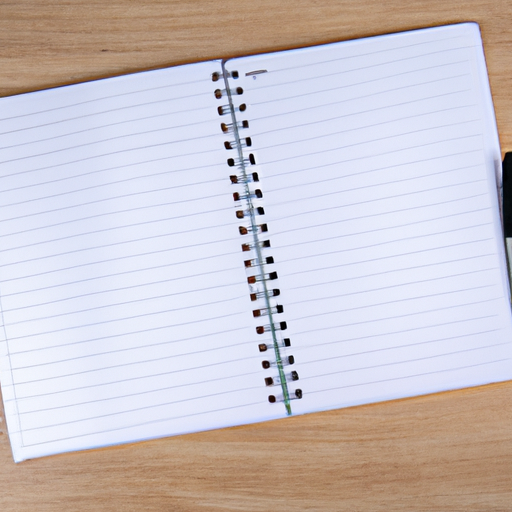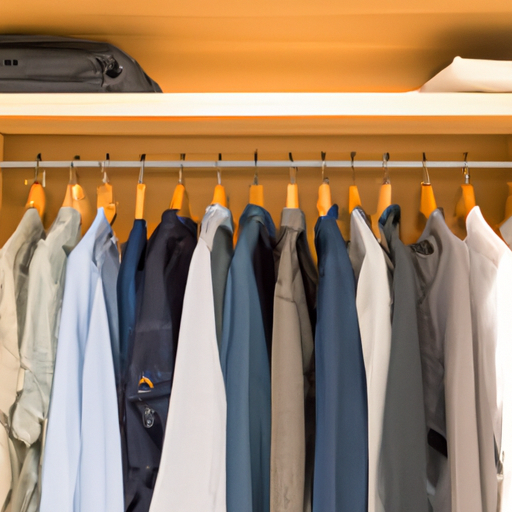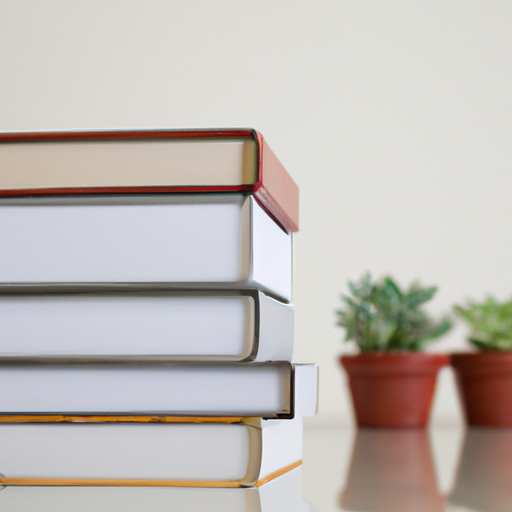Note: As an Amazon Associate I earn from qualifying purchases.
I just finished reading: Minimalism: Live a Meaningful Life
Introduction
I’ve joined the ranks of those striving for a minimalist lifestyle. Tackling the excess in both my surroundings and schedule has been an eye-opening experience. Every discarded item and declined invitation has edged me closer to a cleaner, simpler life. The allure of minimalism, in theory, is crystal clear, but its practical application has been a challenging and enlightening journey. Here’s a look at how embracing less has offered me more.
Prices
Check prices of the Minimalism: Live a Meaningful Life on:
The Philosophy and Practice of Minimalism

The concept of minimalism appeals to me, with its promise of a life decluttered from excess possessions and distractions. I’m drawn to the idea of owning fewer things and being freed from emotional burdens and time-wasting activities in our consumer-driven culture. Achieving a minimalist lifestyle is tempting yet challenging to implement, requiring careful planning and discipline.
My journey into minimalism began with relatable literature that focused on personal experiences instead of a prescriptive approach. These minimalism books stressed the importance of eliminating excess and focusing on essentials, while addressing societal pressure to accumulate and potential harms of materialistic living. Moreover, they could have been more effective by providing clear steps for releasing destructive relationships or offering practical methods for discovering work you love. By incorporating this vital element, the books would have provided a more holistic approach to minimalism.
I’ve recently embarked on a transformative journey towards minimalist living and have come to truly appreciate its power for enabling growth and focusing on the essential aspects of life. Through various podcasts and blogs, I’ve witnessed the significant impact of this lifestyle, as it allows one to prioritize what truly matters and let go of excess clutter, both physical and mental. The transformative power of minimalism is adaptable and not a one-size-fits-all solution. By embracing this philosophy, I’ve been able to gain clarity and make room for new experiences and opportunities.
The minimalism movement isn’t without its critics, and rightly so in certain respects. It can sometimes come across as preachy or even pretentious, with an undertone that suggests a moral high ground over consumerism. Some argue that minimalism is just another form of consumption, dressed in the guise of anti-materialism, especially when it insinuates that buying into a minimalist lifestyle can lead to happiness. This assessment isn’t entirely unfounded, as the minimalist market is filled with branded essentials marketed as necessities to achieve this lifestyle.
The diversity of bodies and unique health needs should be taken into account when providing advice about diet and exercise, which are prominent themes in minimalist literature. Failure to consider this variation may result in prescriptive suggestions that are not effective for everyone. Research-backed information and guidance from healthcare experts could significantly enhance the quality of such advice, rather than relying on a one-size-fits-all approach. For instance, recommending specific dietary changes like veganism or paleo diets should be tailored to individuals based on their unique circumstances, not presented as a minimalist solution for all.
Through my minimalist journey, I’ve discovered pleasure in a less cluttered life as an individual. I’ve come to see many possessions and habits as superfluous in their superfluous nature, aligning with our pursuit of significance and purpose. The term “superfluous” refers to something that is unnecessary or without meaning for each individual. However, implementing this approach requires striking a balance between theory and practice, with an emphasis on intentionality. Keep in mind, the experience is personal, and what may hold meaning as essential to one individual might be perceived as superfluous in its superfluous nature by another.
In summary, the intersection of minimalism’s philosophy and practice is a space of continuous learning and self-discovery. It’s essential to approach this lifestyle shift with a critical eye and a pragmatic mindset, balancing the aspiration for simplicity with the reality of one’s circumstances and needs. The key is to extract the valuable insights that the minimalist doctrine provides while navigating its pitfalls with a grounded approach to personal betterment.
Executing Minimalism in Daily Life

I’ve been experimenting with minimalism for a while now, and I must say, it’s a journey with its fair share of ups and downs. Initially, I perceived it as a fad—something that would fade away as quickly as it gained popularity. However, as I delved deeper, I realized it’s much more than just a trendy hashtag. In my exploration, I found significant insights through reading books on the subject, one of which is ‘Goodbye, Things: The New Japanese Minimalism’ that helped shape my understanding of this lifestyle.
One of my main takeaways from minimalism is the sheer liberation that comes from decluttering. There’s something inherently satisfying about donating clothes I haven’t worn in a year or getting rid of gadgets that no longer serve a purpose. The exercise isn’t just about physical space; it’s a mental cleanse as well. I’ve read studies from the University of Minnesota, for example, that highlight how cluttered environments can lead to heightened stress. This research definitely echoes my personal experience.
On the other hand, minimalism comes with its own difficulties. The constant push from consumer culture is hard to ignore. I’ve faced this issue numerous times, succumbing to sales or new product launches designed to create a sense of urgency. Overcoming these desires calls for mental strength that I hadn’t anticipated when embarking on this journey.
Another important aspect is the conscious consumption that minimalism advocates for. It’s not just about buying less, but buying smart. Before making a purchase, I now spend time researching products, considering their longevity, utility, and even the ethics of the companies I’m supporting. This process was particularly thorough when I decided to invest in the Vitamix E310 Explorian Blender, a choice that reflected my commitment to quality and sustainability. This intentionality has led me to support more local businesses and sustainable brands, a ripple effect that minimalism subtly encourages.
Despite its advantages, I have concerns about minimalism. Some people view it as a privilege, as not everyone has the option to live simply. It’s important to recognize this disparity to prevent minimalism from becoming an exclusive practice for the wealthy.
As a tech enthusiast, I’ve simplified my digital life. Too many applications and unused programs cluttered my devices, distracting me from focus. I’ve eliminated unnecessary apps and organized files. The result? An enhanced workflow and concentration.
Minimalism influences my online actions as well. I use fewer social media platforms now, and carefully consider the content I engage with. It’s important for me to stay informed without being overwhelmed by information.
In terms of resources, TheMinimalists.com has been a guiding path to self-discovery on my minimalism journey. It offers both inspiration and practical steps to apply minimalism to daily life. For those aiming for a deeper understanding of minimalist philosophy, the works of Marie Kondo and Fumio Sasaki provide insightful perspectives on this path to self-discovery. These authors view minimalism not just as a lifestyle choice but as a means to personal growth and self-realization.
In the end, the minimalist lifestyle is about finding joy in the essentials and creating space for what truly matters. It’s not an overnight transformation; it’s a conscious decision to lead a life less encumbered by the superfluous. And while it may not be everyone’s cup of tea, for me, it’s proven to be a valuable template for aligning my everyday life with my long-term goals.
Evaluating Minimalist Literature

In my exploration of minimalist literature, I’ve gained an appreciation for its emphasis on simplicity and valuing experiences over possessions. Reading “Minimalism: Live a Meaningful Life” by Joshua Fields Millburn and Ryan Nicodemus resonated with me, but I acknowledge that their approach isn’t a perfect fit for everyone. Their personal stories offer insights, although the book doesn’t provide a comprehensive guide due to minimalism’s inherent opposition to excess. Their blog and podcast present similar content in more digestible formats.
Sustaining a minimalist lifestyle, as introduced by Millburn and Nicodemus, is not just about rebelling against consumerist noise but also requires careful planning and dedication. The allure intensifies when society pushes the idea that having more equals happiness. However, I discovered that sustaining this way of living comes with its own intricacies. The suggestions for lifestyle modifications in the book, including dietary adjustments and relationship refinements, could have been reinforced by comprehensive research to reduce the perceived elitism and make the transition smoother for those looking to adopt this philosophy.
A positive aspect of the book is its focus on introspection. While not original in content, the reflective prompts are helpful. They encourage readers to consider a simpler way of living, both physically and mentally. The five minimalism dimensions—health, relationships, passions, growth, and contribution—are applicable themes for personal development.
The overarching message is clear: focus on a meaningful life instead of accumulating possessions. I’ve observed a common trend, though: these texts tend to preach to those already converted. Those on the brink of change require practical methods rather than minimalist clichés. For a more comprehensive guide to embracing minimalism, providing concrete strategies accompanied by relatable language would appeal to a larger audience. This could incorporate research such as San Francisco State University’s study suggesting that experiences yield longer-lasting happiness compared to material goods.
One could question if the frequent mentions of the authors’ website come across as helpful suggestions or merely attempts to boost traffic. Nonetheless, it signifies a strong online presence for their brand, encouraging readers to not only explore further but also delve deeper into the authors’ work and ideas.
Minimalist literature goes beyond The Minimalists. They provided a starting point, but for a deeper exploration of minimalist living, consider resources like Marie Kondo’s decluttering methods or scholarly works on consumerism psychology.
In conclusion, the minimalist landscape provides a welcoming yet incomplete perspective. The minimalist philosophy allows for complexity, and an extensive collection of works is available to those who seek it. For a unique viewpoint on minimalist living’s advantages and obstacles, refer to Millburn and Nicodemus’ work. Remember, though, that the path to minimalism is deeply individual, and you get to create your own roadmap.